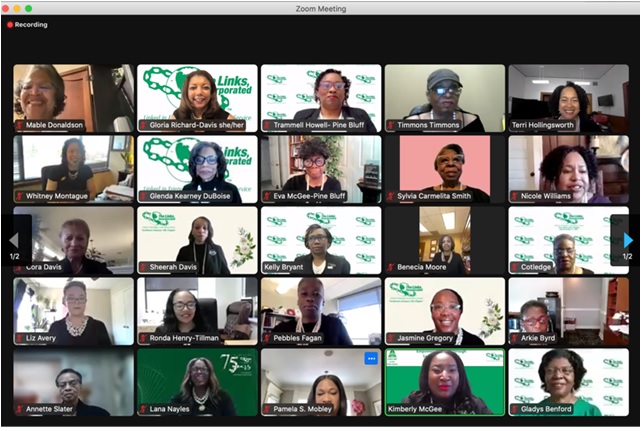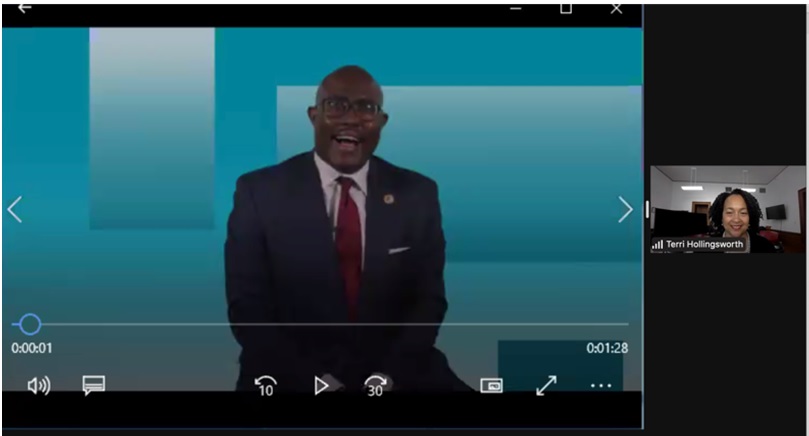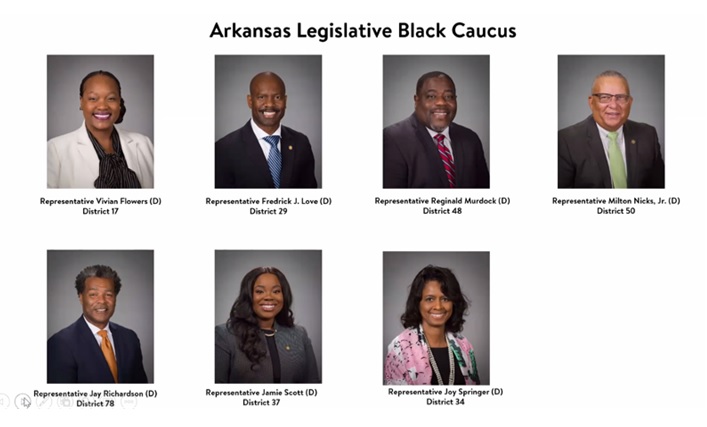National Trends and Services
National Trends and Services Our Mission
The National Trends and Services facet addresses the social inequities that persist in our local Black communities and throughout the United States. The Little Rock Links, Incorporated is committed to raising awareness on economic, health, social justice, and other barriers that affect our quality of life. Our goal is to eliminate disparities in these areas for the betterment of our communities.
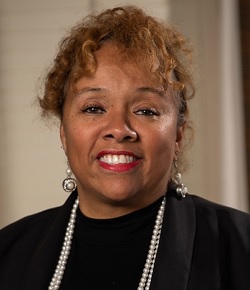
Bo Springer, Chairperson
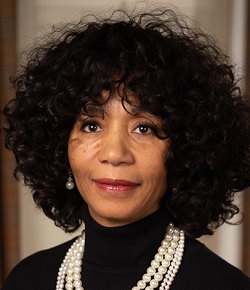
Alicia Ferguson Smith, Co-Chair
Black Maternal Mortality Rates is a Crisis
TOXIC Documentary Viewing and Discussion Sessions
Little Rock Chapter of Links, Inc and UAMS Hosts Panel Discussion on Black Maternal Mortality
 Toxic follows Nina, a pregnant Black woman navigating her career, marriage and motherhood while dealing with race-related stress.
Toxic follows Nina, a pregnant Black woman navigating her career, marriage and motherhood while dealing with race-related stress.
The Little Rock Chapter of Links, Inc partnered with the University of Arkansas for Medical Sciences hosted a distinguished panel discussion about Black maternal mortality rates and the short film Toxic: A Black Woman’s Story.
UAMS Division for Diversity, Equity and Inclusion (DDEI), in partnership with the Little Rock (AR) Chapter of The Links, Inc. and the National Healthy Start Association, hosted several virtual viewings of the film followed by community discussions on Black maternal mortality rates in the weeks leading up to the panel discussion. Currently, Black women in the United States are three to four times more likely to die from complications of pregnancy and childbirth than white women are. Additionally, babies born to Black women are two to three times more like to die before their first birthday. In Arkansas, the maternal mortality rate is 50% higher than the national rate.
Gloria Richard-Davis, M.D., executive director of UAMS DDEI and vice president of the Little Rock (AR) Chapter of The Links, Inc., said The Links, Inc. has a national initiative to raise awareness about Black maternal mortality rates and to improve maternal health. With Arkansas’ high maternal mortality rates, it is a critical and needed discussion for our communities.
Toxic follows Nina, a pregnant Black woman navigating her career, marriage and motherhood while dealing with race-related stress. Throughout the film, which shows just one day in her life, she experiences several microaggressions involving her co-workers, her son’s teacher and a convenience store attendant. She also expresses concern over her pregnancy symptoms to her doctor only to be quickly brushed off.
Several community viewing and discussion sessions were held throughout March 2022.

https://news.uams.edu/2022/04/20/uams-hosts-panel-discussion-on-black-maternal-mortality/
The community discussions concluded with a distinguished panel discussion on March 30 at 5 p.m.
Panelists: –
• Haywood Brown, M.D., of the University of South Florida Health –
• Veronica Gillespie, M.D., of Ochsner Health in Louisiana –
• William Greenfield, M.D., of the UAMS Department of Obstetrics and Gynecology –
• Deborah Frazier, RN, CEO of the National Healthy Start Association and member of Little Rock Chapter of Links, Inc.
Moderator: Amber Nicole Booth-McCoy, UAMS Manager of Intercultural Education
To watch the distinguished panel discussion, click here:
https://www.youtube.com/watch?v=-KQazDjjfsI
Gov Hutchinson issued a proclamation addressing Black and all women maternal mortality as a crisis for Arkansas.

Pictured from L-R: Terri Hollingsworth, Co-Chair of Little Rock Links, Inc National Trends and Services, Gov Asa Hutchinson, Gloria Richard-Davis, MD, Vice President LR Links and Kaylee Sexton, UAMS communications.
Links Legislative Day
Terri Hollingsworth, Pulaski County Assessor and Little Rock Chapter of Links, Inc Co-chair of the National Trends Facet arranged our AR Legislative Day on March 3, 2022 on Zoom. The Little Rock Chapter of Links, Inc partnered with our sister chapters Pine Bluff Chapter of Links, Inc and Northwest AR Links, Inc to meet with Mayor Frank Scott and Black Caucus Legislators to address health, education, economic and social justice issues that disproportionately affects our Black communities.
